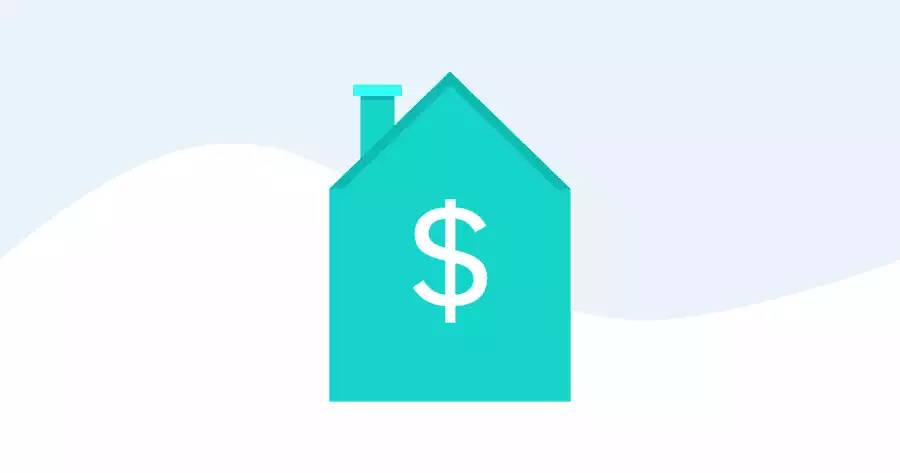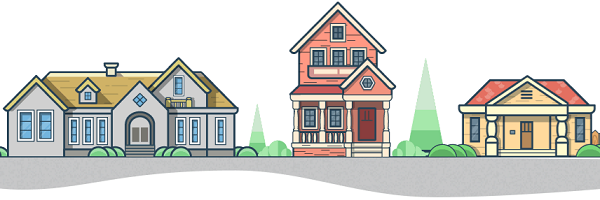
In collaboration with BMO Global Asset Management
Truth is, Canada’s housing market is one of the most expensive, with the biggest gap between incomes and property prices among the G7 nations. Canadians of all ages feel like they’ll never be able to invest in real estate.
Darren Voros says “think again.’’ There’s more than one way to get into the market, and you don’t always need cash either.
He’s a seasoned real estate investor and skilled contractor with a portfolio of over 300 doors. You might have seen him on popular shows like CityLine, or ‘The Goods’ on CBC. More importantly, he’s a financial literacy activist on a mission to teach Canadians how to use real estate to build wealth. If property prices are killing your vibe, let Darren teach you 10 clever ways to invest in real estate for less money than you think. (Or no money at all!).
1. Real Estate Investment Trust (REIT): ETFs & Stocks
A Real Estate Investment Trust (REIT) is a company that uses money from investors to buy and manage property. The rental income generated is typically paid back to investors in the form of dividends.
Darren explains that REIT ETFs and stocks are by far the easiest way to invest in real estate. “You can start with an amount as little as $50. It's backed by a solid asset, which I really like. And you can invest in bite-sized portions in a way that really works for your individual situation.”
Not only are REIT ETFs and stocks easy to access, but the ones that pay dividends also generate passive income for you.
An ETF is an exchange-traded fund that holds a basket of securities, in this case a diversified portfolio of different REITs. BMO’s Equal Weight REITs Index ETF (ZRE) provides exposure to more than 20 Canadian Real Estate Investment Trusts (REITs). The portfolio of REITs is equally weighted, which helps lessen security-specific risk equally, distributing your money across the different REITs.
REITs are great diversifiers for Canadian investors who are typically overweighted in energy and financials. They also provide an attractive dividend yield. ETFs allow investors to gain access to asset classes and are a cost-efficient investment vehicle.
2. Flipping Houses
What if you have a stash of cash, but not enough to buy the home of your dreams? One strategy is to buy a fixer-upper you can afford, ideally priced under market value, then renovate it. The goal is to increase the value and sell it at a higher price to make a profit. But it comes with more risk and requires an upfront investment.
Darren Voros explains, for the right person, it can be a solid strategy to generate income. “Flipping properties is great for creating short-term cash, but it’s not great for building wealth.”
He says that flipping is essentially running a business, so you need to keep up operations or the cash flow stops. Nor do you end up owning the asset. But it can be a great way to build up capital so that you can buy the right kind of property for a long-term investment when the opportunity presents itself.
Just make sure you understand the risks. It involves a degree of timing the market, which is difficult, requires a down payment, and takes time.
“A lot of people watch a show on HGTV, and they see it done in 30 minutes. These projects take months and one small mistake can throw off your numbers significantly. You either need to be partnered with someone who really knows what they're doing, or you need to get educated on how to do it yourself.”
3. Airbnb Arbitrage
Arbi-what? Arbitrage is buying something at a lower price in one market and selling it at a higher price in another market. Darren explains that Airbnb Arbitrage is a great way to generate rental income without having to purchase a property yourself.
Instead, you sign a traditional rental lease with a landlord, then sublet the property on the short-term rental market, like Airbnb or VRBO, for example.
Just make sure the landlord knows what you’re doing and agrees so you don’t risk any legal issues. It’s also important to understand your legal and financial responsibilities as a host and have the proper insurance coverage in place.
4. House Hacking
Property prices are finally on the decline but rising interest rates are making mortgage payments hella expensive. Fear not, Darren Voros has a hack for that. You can purchase a home and avoid becoming house poor by choosing a property with multiple bedrooms that you can rent out. Your roommates not only pay your rent but, ideally, you can “make a little bit of money on the side and live for free,” he explains.
On the other hand, if you’re a millennial reading this, you’re probably so done with roommates. Darren is too. He suggests purchasing a property with units like a duplex or triplex. Or look for a property that can be renovated into units, like a single-family bungalow where you can convert a basement or a story into a self-contained apartment.
The trick is to live in one of the units yourself. Darren explains why it’s one of his favourite ways to house hack, “If I live in one of the units, I get better financing terms. If it's my primary residence, I can put as little as 5% down on that property. So my cash invested is a lot less, but I also get the benefit of having additional units to offset living costs.”
5. Partner Up on a Multi-Family Dwelling
Darren Voros explains that while a duplex and triplex are technically multi-family dwellings, larger properties with 6 or more units unlock unique financing terms. Of course, a building of this size is a lot more expensive. If you’re short on cash, consider partnering with someone who has money to invest.
The benefit of a property with 6 or more units is that the building itself is what qualifies for financing, rather than you the person. Someone just has to put up a personal guarantee and the down payment, that could be you or the person you’re partnering with. The bank then assesses the property’s ability to generate rental income, not your personal financial capacity to make mortgage payments.
6. Seller Financing
Seller financing is a method many cash-strapped investors use to purchase real estate, and tends to be more common when the market is down. With this type of agreement, the seller acts like a bank and finances all or a portion of the purchase for the buyer. The buyer agrees to repay the loan back to the seller with interest over a defined period of time, and once the debt is paid in full the buyer owns the property outright.
Darren explains it this way: ”This is the same as any other real estate transaction. I buy a property from you, the seller. The difference is that we would have an agreement between the two of us. I can get bank financing for X amount of dollars on this property. Then you, the seller, are going to give me a second mortgage on this property. Then I'm going to repay you for the next two or three years with interest. In two or three years, I'm going to pay out that second mortgage, and I'm going to own the property outright at that point.”
Sounds risky for the seller, but they still have rights to the property. If you default, they can just take the property back and list it for sale if they want to, explains Darren. The benefit for them is that the sale of their home actually becomes an investment with returns. And the benefit to the buyer is being able to purchase a property if they don’t qualify for traditional financing, don’t have the appropriate down payment, or don’t want to spend all their money on one.
7. Wholesaling
Buy low, sell high applies to real estate too. Wholesaling is when you find a property under market value and sell it to a buyer at a profit. Here’s the kicker, you don’t have to cough up any cash either. You find a motivated seller and negotiate a price that is under market value. Once you’ve got that property under contract, you turn around and sell it to a buyer at market value and keep the difference.
According to Darren, it’s a great low-risk strategy to make money in real estate and is especially well suited for those with strong sales, marketing, and people skills. It’s low risk because you don’t actually sign the contract unless you already have an interested buyer or someone in mind. Typically, there’s a clause that lets you back out of the agreement if you don’t find a buyer by a specific date.
8. Already own a home? Use your equity
If you’re a homeowner already, you might be interested in investing in other properties to grow your wealth. But you might not have enough cash on hand for a down payment. According to Darren Voros, using the equity in your primary residence is how most people start investing in real estate.
What most people don’t understand, he explains, is that when you refinance your mortgage you get a tax-free lump of cash because it’s debt, not income. Now you can use that money to invest in another asset like purchasing an additional property, lending it out privately, or putting it in an ETF.
You can pretty much do anything with it, he explains, making it a “great way to use the existing equity in your property to build your net worth.” Depending on how you invest it, you may even be able to claim the interest you pay on the debt as a tax deduction.
9. Use an Alternative Lender
If you can get conventional lending from a traditional bank, that’s usually the best way to finance a property. But from a real estate investing perspective, explains Darren Voros, it can also be totally backwards. An alternative lender has much looser qualification requirements, making it a lot easier to break into the market, especially for something like an income property.
Getting into the market is the hardest part.“People need to switch their mindset to use alternative lenders to acquire the property because the bank always likes to finance properties that you already own, versus ones that you're acquiring.”
The key is to have a short-term exit strategy, ideally no longer than 12 months out. Once you own the property, you have real numbers to take to the bank. Darren says, now you can show them “the renovations cost me X. The value of the property is now X because I’ve had it appraised. And I've already got X rental income, here are the leases.” The bank is much more likely to finance you.
10. Become an Alternative Lender
You don’t always have to be the borrower when it comes to real estate, you can be the bank and lend out your own capital. By doing this, you become a mortgagor with the same rights and regulations as a traditional lender and can even secure the loan with the property to reduce your risk exposure. If the borrower defaults, you can exercise a power of sale and take back the asset.
Of course, this is a higher-risk move and requires you to have cash on hand to lend out. But if you don’t have enough to buy a property yourself, it’s one of Darren’s personal favourite ways to generate passive income through real estate. “Every single month, I'm getting that cash flow cheque that comes into my account.”
Darren explains if you have a little nest egg, you can start with as little as $10,000-$20,000. You don’t have to secure the loan. But once you get into the higher amounts, like $50,000 and up, then securing is a smart move because the process is simple if things go south. “Right now, I’m seeing annualized rates of return between 10-15%. If I can take my $20,000 and make 15% on it, that’s a solid return.”
Disclaimers
This article is sponsored by BMO Global Asset Management
“Views expressed regarding a particular company, security, industry or market sector should not be considered an indication of trading intent of any investment funds managed by BMO Global Asset Management. Any reference to a particular company is for illustrative purposes only and should not be considered as investment advice or a recommendation to buy or sell nor should it be considered as an indication of how the portfolio of any investment fund managed by BMO Global Asset Management is or will be invested. This social media network is an independent organization and is not affiliated with BMO Global Asset Management.”
Commissions, management fees and expenses all may be associated with investments in exchange-traded funds. Please read the ETF Facts or prospectus of the BMO ETFs before investing. Exchange-traded funds are not guaranteed, their values change frequently and past performance may not be repeated.
For a summary of the risks of an investment in the BMO ETFs, please see the specific risks set out in the BMO ETF’s prospectus. BMO ETFs trade like stocks, fluctuate in market value and may trade at a discount to their net asset value, which may increase the risk of loss. Distributions are not guaranteed and are subject to change and/or elimination.
BMO ETFs are managed by BMO Asset Management Inc., which is an investment fund manager and a portfolio manager, and a separate legal entity from the Bank of Montreal.
®/™Registered trademarks/trademark of Bank of Montreal, used under licence.
Forward-looking Disclaimer:
Any statement that necessarily depends on future events may be a forward-looking statement. Forward-looking statements are not guarantees of performance. They involve risks, uncertainties and assumptions. Although such statements are based on assumptions that are believed to be reasonable, there can be no assurance that actual results will not differ materially from expectations. Investors are cautioned not to rely unduly on any forward-looking statements. In connection with any forward-looking statements, investors should carefully consider the areas of risk described in the most recent simplified prospectus.
This communication is intended for information purposes only. The comments contained do not necessarily represent the views of BMO Global Asset Management. The views are subject to change without notice as markets change over time. The information contained herein is not, and should not be construed as, investment advice to any party. Investments should be evaluated relative to the individual’s investment objectives and professional advice should be obtained with respect to any circumstance.






















About The Author: Heidi Unrau
Heidi Unrau is the senior Finance Journalist at Hardbacon. She studied Economics at the University of Winnipeg, where she fell in love with all-things-finance. At 25, she got her first bank job as an entry-level teller. She moved up the ranks to Credit Analyst, Loans Officer, and now a Personal Finance Writer. In her spare time, you'll find her hiding in the car listening to Freakonomics podcasts, or binge-watching financial crime documentaries with a pint of Häagen-Dazs. When she's not chasing after her two little boys, she's in the hot tub or arguing with her husband over which cash back card to use for date night. She’s addicted to coffee, crypto, and obsessively checking her credit score on Borrowell.
Fun Fact: Heidi has lived in five different provinces across Canada, loves her free Tangerine bank account, and will never cut back on Starbucks. Like ever.
More posts by Heidi Unrau